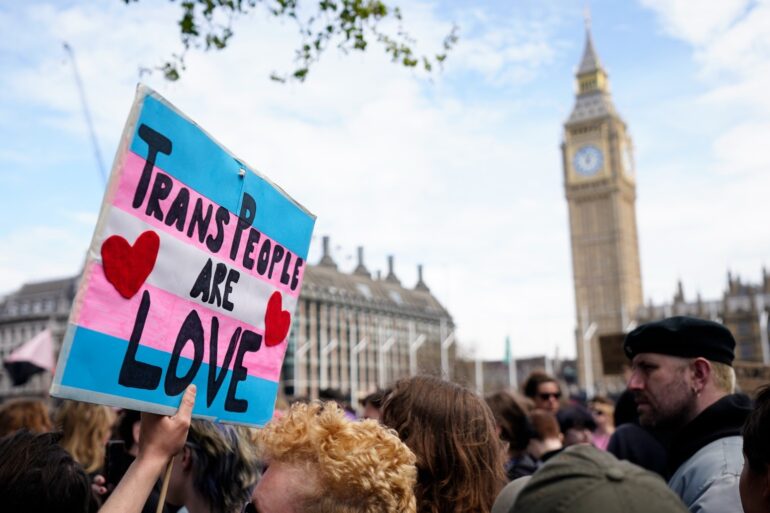-
 play_arrow
play_arrow
Chorley ONE Local Radio for Chorley
Charities and councils warn of childrens social care breaking point


Councils and charities have joined forces to call on the Government to stabilise a children’s social care system at “breaking point”, and bolster protections in “progressively challenging circumstances”.
Organisations providing support to children said it is vital that additional funding is included in the forthcoming spending review to ensure children and young people are shielded from harm at a time of rising demand and costs.
The latest Government figures show there were 621,880 referrals to children’s social care in the year to March 31, 2024 – equivalent to 1,704 a day.
Nearly 400,000 children were classified as being in need of support and protection in the same period, while 50,000 were on child protection plans due to the severity of risk.
The Local Government Association (LGA) said 224,520 investigations were carried out last year to establish if a child was suffering, or at risk of, significant harm.
More than half of children involved were found to have abuse or neglect as their primary need, with factors such as domestic abuse and mental health playing a significant role.
As demand for support has remained stubbornly high in recent years, costs have increased sharply, leading to reductions in spending on prevention services in many areas.
Children’s social care budgets in 2024/25 overall increased by 11% on the previous year to £14.2 billion, driven by rising costs of residential placements, most of which are provided by the private sector, and growing need for specialist support for children with complex needs.
The Government has stated its intention to address these issues with measures in the Children’s Wellbeing and Schools Bill, supported by a children’s social care prevention grant. Several funding streams have also been consolidated into a new children and families grant.
But providers of support to children said these measures are not currently sufficient to meet the scale of the challenge.
A spokesperson for the the Children’s Charities Coalition, which includes Action for Children, Barnardo’s, The Children’s Society, National Children’s Bureau and the NSPCC, said: “All children have the right to grow up in safe and happy homes.
“Yet through our services and networks we are hearing directly about a children’s social care system at breaking-point, desperate for investment in order to respond with the right support at the right time when children are at risk or in need.
“Frontline workers carry out vital work supporting vulnerable children and families in progressively challenging circumstances.
“However, with chronic underfunding and councils trapped in a downward financial spiral unable to meet demand, we should not be waiting for children to be in harm’s way before they receive help and we should be giving families the support they deserve.”
The coalition’s research found spending by councils on early intervention services has dropped by more than £2 billion, or 42%, since 2010/11, at a time when spending on residential care for children has risen to a record high.
“With around 1,700 children being referred to social care every day, and with increasingly complex needs, it’s never been more important that services can match this growing demand and reach families early on before they hit crisis point,” the coalition added.
A recent study led by academics at University College London found one in four children in England need social care services by the time they turn 18, amid warnings over poverty and spending cuts.
The study has led to questions about whether the current focus on snapshot annual children social care figures provides a complete picture to officials and decision-makers.
Arooj Shah, chair of the Local Government Association’s children and young people board, described support for children and young people as “central to the delivery of the Government’s mission to break down barriers to opportunity”.
She added: “With investment in children’s social care and partner agencies including mental health provision, we can focus on early intervention and preventing children from reaching crisis point, where the level and costs of support are significantly higher.
“The spending review is an opportunity for long-term, sustainable funding for children’s social care and the services children and families rely on, that puts the sector on a stable footing and provides the support that enables every child to thrive.”
Rachael Wardell, president of the Association of Directors of Children’s Services, said safety and stability is “not the reality for too many children in this country”.
She added: “Children and families continue to face significant and growing challenges, and we need a child-first approach to national policymaking.
“As these shocking figures suggest, we need to shift both focus and funding toward early help and prevention for children and families, rather than just responding once they’re already in crisis.”
Ms Wardell added that social care services should reflect “actual level of need”, with budgets currently unable to deal with demand.
“The Government has a real opportunity here to create the conditions for success, but any reform needs to be backed by sufficient resources and capacity for local authorities to deliver, in the best interest of every child and their families,” she said.
A spokesperson for the Department for Education said: “This Government inherited a children’s social care system failing to meet the needs of the country’s most vulnerable children.
“Our landmark Children’s Wellbeing and Schools Bill is the biggest overhaul of children’s social care in a generation, driving better child protection and improved information-sharing between teachers, social workers and other professionals to prevent children falling through the cracks.
“As part of our Plan for Change, we are also doubling council funding for early intervention, giving thousands more families the support of a specialist worker who can provide all the help they need, from parenting to mental health or addiction.”
Published: by Radio NewsHubClick here to read this story in full at Radio News Hub
Written by: admin
Similar posts
Latest News
- Trans rights groups lead emergency protest over landmark gender court ruling
- UK firms put the brakes on investment plans post tariffs
- Urgent action urged to tackle growing workload crisis for teachers
- Social media influencers fuelling misogyny in schools
- Third of 18 to 21 year olds worry about money every day
Top popular
Copyright THe Mediasite - 2024













